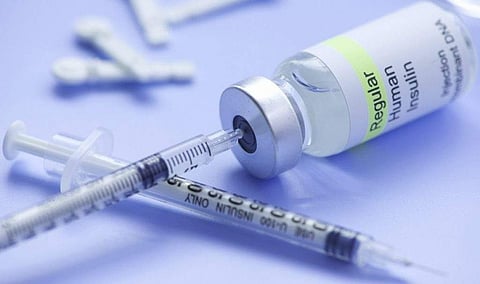Chennai students develop breathalyser-like test for blood-less, prick-free diabetes check
Diabetes is en route to becoming an epidemic in India with more than 62 million people already diagnosed with the disease. Day in and day out, diabetes patients have to get themselves pricked in order to test sugar levels in their blood, besides being painful, the procedure gets quite tiresome for them. But thanks to a couple of students from a Chennai college who have come up with a new device, patients might not have to go through this pain anymore.
Students from the Biomedical Engineering department at St Peter's Institute of Higher Education and Research along with their guide have come up with a device that can detect diabetes and can be used to measure sugar levels without going anywhere near a needle. The students have built the device based on the principles of an alcohol breathalyzer and will only require the patient to breathe into the device to determine if they have diabetes or for already diagnosed patients, to determine their sugar levels.
The team: The two St Peter's students, G Gnancy Subha and M Fazilath with their mentor Dr K Kantharaj
G Gnancy Subha and M Fazilath, both final year students, said that they had taken about three to four months to develop the device but the idea itself was their mentor's, Dr K Kantharaj, who is a doctor himself. "Through my experience as a doctor, I've found that a diabetic person's breath contains acetone and the device measures the acetone levels that can be used to determine the diabetes level. That's why I suggested that the students could work on a device like an alcohol breathalyzer," he explained.
Trial run- A patient using the device developed by the students
The team claims that they have tested the device on about 150 - 200 people inside and outside their college and it has yielded 90 per cent accurate results. The project titled "Prototype Development of Gluco L" was conducted under the government scheme - Support for Entrepreneurial and Managerial Development of SMEs Through Incubators.
"We're now looking for funding so that we can patent the device and make it available to people,' said Gnancy. Kantharaj also said so far in their research they had not come across any other such device that did not need to use blood to test for diabetes and feel that this could be a game changer in more ways than one.



